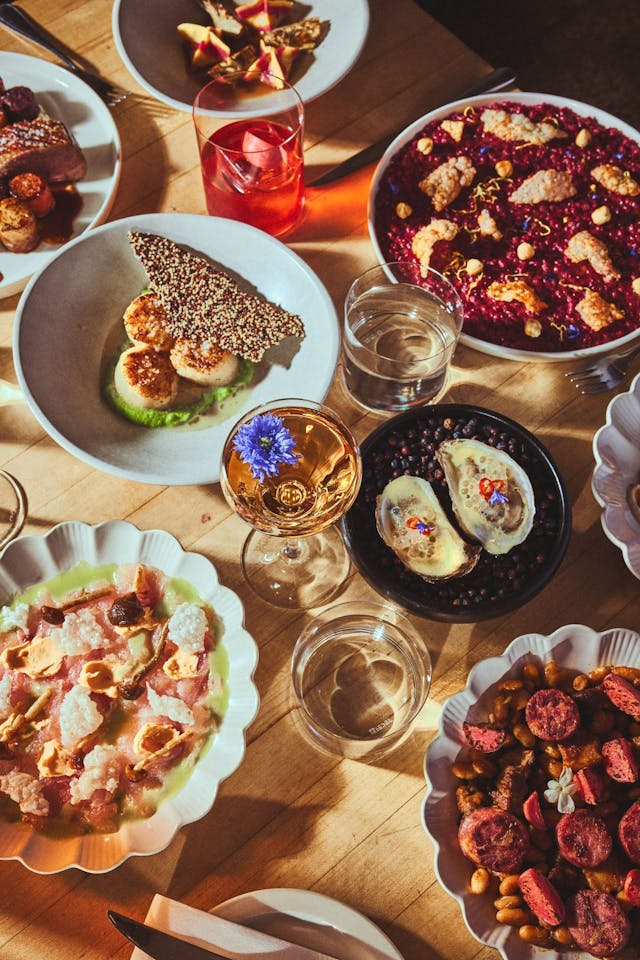The Arab diaspora experience comes down to one word: Ghorbeh. Its literal translation is “being in the West”, but it embodies the reality of being without your family and your community, and adjusting to what is around you.
It also means you have to make do with finding the comforts of home in an unfamiliar setting, looking to people, communities, ingredients, and even restaurants to get that feeling.
Having lived in Montreal for over fifteen years as a picky Palestinian/Lebanese immigrant, a big part of ghorbeh I’ve witnessed is fellow Levantine Arabs—Lebanese, Palestinian, Syrian—opening food concepts that boast our cultural background.


Comparing and contrasting Beirut's Uncle Deek (left) with Lulu Epicerie in Montreal (right). | Photograph: Courtesy Lulu Epicerie
For readers who care about Montreal
Create a free account to read this story and access 3 articles per month, plus our weekly Bulletin.
Independent. Local. Reader-supported. Join 10,000+ Montrealers today.
Already a member? Sign in









![The Bulletin: Bus shelter acrobatics, Lunar New Year raves, and Slavic crêpes [Issue #169]](/_next/image?url=https%3A%2F%2Fthemain.ghost.io%2Fcontent%2Fimages%2F2026%2F02%2F51607__F03EE024-17D7-4FB4-B04CC09961F21468-1.jpg&w=256&q=75)


![The Bulletin: A total eclipse of Montreal's heart [Issue #71]](/_next/image?url=https%3A%2F%2Fthemain.ghost.io%2Fcontent%2Fimages%2F2024%2F04%2Fplateau_astro_364257234_587210493616100_7677788302034649486_n.jpg&w=640&q=75)



![The Reeds: A Novel [Stamped by Author]](/_next/image?url=https%3A%2F%2Fcdn.shopify.com%2Fs%2Ffiles%2F1%2F0601%2F1709%2F0544%2Ffiles%2FIMG_9098.heic%3Fv%3D1730301494&w=3840&q=75)